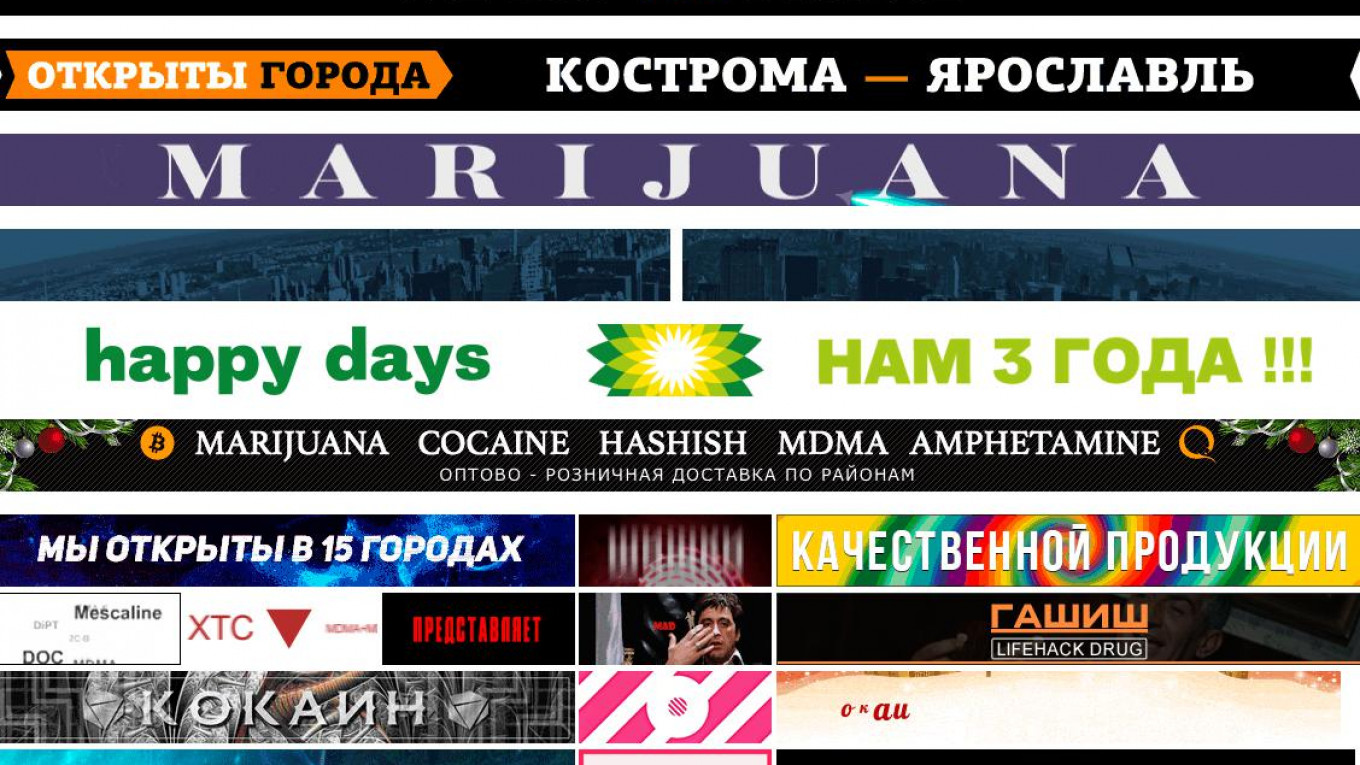A social media post by police in a Siberian city has shed light on the illegal drug trade flourishing in dark corners of the Russian internet.
Omsk city police on Monday published posts on Twitter and the Russian social network Vkontakte warning that a social media account named “Hydra” was sending locals messages offering to sell illegal narcotics online, the Media Leaks website reported.
The messages advertised “European quality, Colombian standards, Pakistani warmth, and Iranian industriousness,” and promised to deliver the drugs anywhere in Russia and the Commonwealth of Independent States. Hydra invited users to access the online market through TOR, a program used to browse the internet anonymously.
Omsk police encouraged locals to ignore Hydra.
Awkwardly, the police initially posted screenshots of the messages without blocking out the web addresses — making their posts look more like an advertisement for drugs than a public service announcement.
The police eventually covered the addresses when several users criticized them for publishing the screenshots.
Hydra's messages underline the role of technology in Russia's drug trade. According to Media Leaks, anonymous automated chat bots pushed drugs over online messenging apps last year. In one case, a bot in the popular Telegram messenger posed as the Sportsmaster chain of stores in Urals city of Chelyabinsk to sell spice, a synthetic cannabis substitute.
After its launch in October, Facebook's Marketplace trade platform also became a site of drug and weapons sales, before the social network cracked down on illegal trade.
Hyrda's messages represent a more advanced approach taking advantage of the “dark net” — parts of the internet accessible only through TOR or special software.
In Russia, the dark net has revolutionized the drug market. Drug users, who once had to rely on shady dealings with criminal elements, can now get their fix through competitive, quality-controlled, anonymous websites where drugs are sold for bitcoins — an online cryptocurrency — and distributed through dead drops.
The Silk Road website, which conducted a feverish trade in illegal goods starting in 2011, epitomized the concept of a dark web marketplace. However, in October 2013, U.S. law enforcement arrested owner Ross Ulbricht, also known as Dread Pirate Roberts online. The website was subsequently shut down.
In 2015, Ulbricht was sentenced to life imprisonment for facilitating the sale of over $1 million in narcotics. Since the closure of Silk Road, several successor sites have been launched.
A Message from The Moscow Times:
Dear readers,
We are facing unprecedented challenges. Russia's Prosecutor General's Office has designated The Moscow Times as an "undesirable" organization, criminalizing our work and putting our staff at risk of prosecution. This follows our earlier unjust labeling as a "foreign agent."
These actions are direct attempts to silence independent journalism in Russia. The authorities claim our work "discredits the decisions of the Russian leadership." We see things differently: we strive to provide accurate, unbiased reporting on Russia.
We, the journalists of The Moscow Times, refuse to be silenced. But to continue our work, we need your help.
Your support, no matter how small, makes a world of difference. If you can, please support us monthly starting from just $2. It's quick to set up, and every contribution makes a significant impact.
By supporting The Moscow Times, you're defending open, independent journalism in the face of repression. Thank you for standing with us.
Remind me later.






